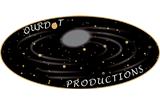 2/24/2026 8:11:13 AM
2/24/2026 8:11:13 AM
Education

Our societies are dominated and even 'driven' by ideas and products from science and technology (S&T) and it is very likely that the influence of science and technology on our lives will continue to increase in the years to come. Scientific and technological knowledge, skills and artefacts 'invade' all realms of life in modern society: the workplace and the public sphere are increasingly dependent on new as well as upon more established technologies. So, too, are the private sphere and our leisure time. Scientific and technological knowledge and skills are crucial for most of our actions and decisions, as workers, as voters, as consumers, etc. Meaningful and independent participation in modern democracies assumes an ability to judge the evidence and arguments associated with the many socio-scientific issues that appear on the political agenda.
In short, modern societies need people with scientific and technological qualifications at the highest level as well as a general public which has a broad understanding of the contents and methods of science and technology, coupled with an insight into their role as social forces that shape the future. Science and technology are major cultural products of human history, and all citizens, independently of their occupational 'needs', should be acquainted with them as elements of human culture.
One might expect the increasing significance of science and technology to be accompanied by a parallel growth in interest in these subjects and in an understanding of basic scientific ideas and ways of thinking. This does, however, not seem to be the case, especially in the more developed countries of Europe and the OECD.







